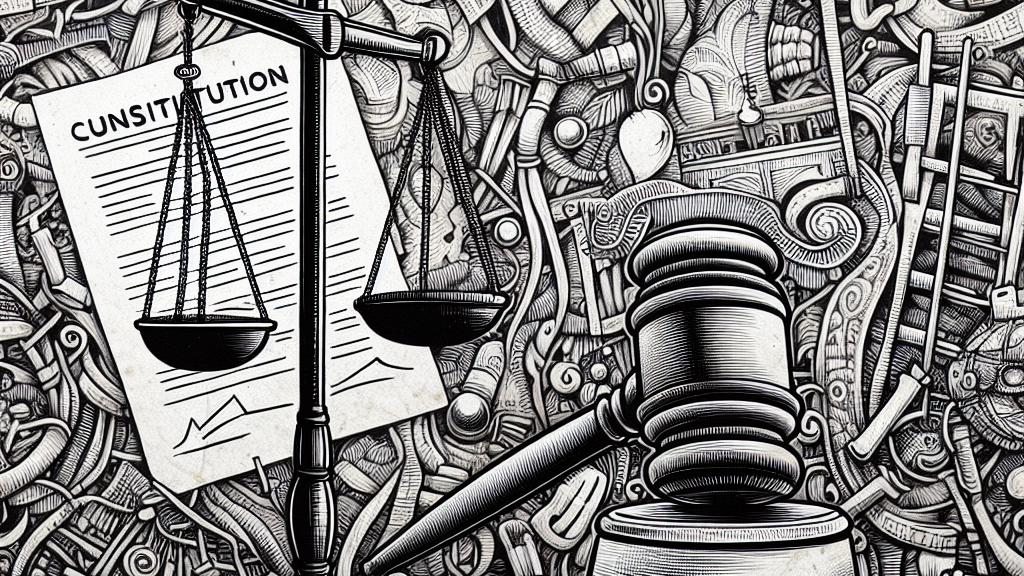Zambia's President Dismisses Judges Amid Accusations of Political Motives
Overview
- President Hakainde Hichilema's recent dismissal of three judges has ignited widespread controversy across Zambia.
- The judges, who ruled against Hichilema in past elections, are perceived by many as scapegoats for political grievances.
- This situation raises critical concerns about the judiciary's independence and the future of democracy in the nation.

Political Context in Zambia
In a bold and controversial act, Zambia's President Hakainde Hichilema has dismissed three judges from the Constitutional Court, sparking a firestorm of debate across the nation. This decision unfolds in a politically charged environment, as Zambia gears up for the pivotal 2026 elections. These judges—Justices Annie Sitali, Mungeni Mulenga, and Palan Mulonda—had previously ruled against Hichilema in the 2016 presidential election dispute and supported Edgar Lungu's controversial candidacy in subsequent elections. Critics argue that Hichilema's actions serve not only as retaliation for unfavorable decisions but also set a dangerous precedent for political interference in judicial matters. Many Zambians are left questioning whether this is a legitimate effort to restore judicial integrity or a calculated move to consolidate power. As the political landscape shifts, the implications of this dismissal could far outweigh the immediate effects.
Judicial Concerns and Public Reaction
The dismissal of these judges has sparked intense public discourse, with Zambians sharply divided over its implications. Supporters of Hichilema assert that the judges' past dealings demonstrated a significant bias that undermined the electoral process. They argue that this corrective measure is necessary to ensure fair governance going forward. In stark contrast, opponents—including prominent legal figures—label it as a blatant act of executive overreach. For example, Makebi Zulu, an attorney for Lungu, referred to this dismissal as a systematic attack on judicial autonomy, stating, "No judiciary can function effectively under constant threat of political retribution." Meanwhile, social commentator Laura Miti observes that many in the public remain ambivalent, torn between viewing this as a necessary legal adjustment and as a perilous encroachment on justice. Therefore, the nation's discourse around this issue reflects broader anxieties regarding democracy and governance in Zambia.
Future Implications for Democracy in Zambia
Looking ahead, the future of democracy in Zambia appears uncertain, with the recent judicial dismissals marking a significant turning point in the nation’s governance. Since Hichilema's rise to power, Zambia has experienced a resurgence of democratic ideals after years under Lungu's autocratic rule. However, consistent threats to judicial independence could jeopardize the hard-fought freedoms as noted by the Varieties Democracy Institute. The success of Zambia's democratic revival hinges on maintaining a robust and unbiased judiciary; if political motives continue to influence judicial decisions, it could reverse the progress made. Thus, citizens and activists alike must remain vigilant and engaged, advocating for an independent judiciary that can stand firm against political pressures. As the world observes, the unfolding events in Zambia will serve as a litmus test for the resilience of democracy in the region, encapsulating both the hopes and fears of its people.

Loading...